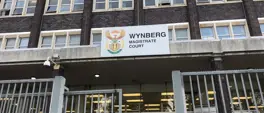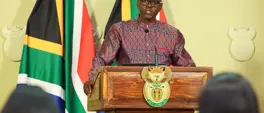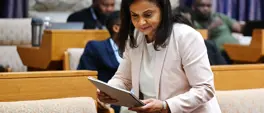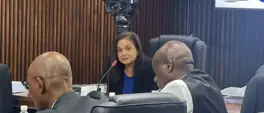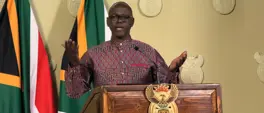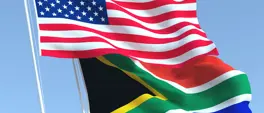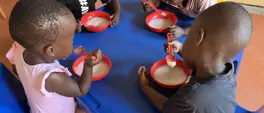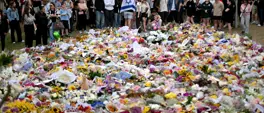Malaria ravages Nigerian city infamous for vaccine doubts
AFP
21 November 2024 | 7:40Last month, Nigeria secured 846,000 doses of malaria vaccine in its campaign to fight the parasitic scourge, long a major concern in Africa's most populous nation.
KANO - Zuwaira Muhammad sat beside her emaciated 10-month-old twins on a clinic bed in northern Nigeria, caring for them as they battled malnutrition and malaria.
She will have her babies vaccinated if they regain their strength, but for many in Kano -- a hotbed of anti-vaccine sentiment -- the choice is not an obvious one.
The infants have been admitted to the 75-bed clinic in the Unguwa Uku neighbourhood, one of only two in the city of 4.5 million run by French aid agency Doctors Without Borders (known by its French acronym MSF).
Kano has the highest malaria burden in Nigeria, but the city has long been known for a deep-seated suspicion of vaccinations against several diseases.
People in the conservative north of the country tend to look to the guidance of their own religious leaders, given in their native Hausa language, over international campaigns associated with federal authorities.
Last month, Nigeria secured 846,000 doses of malaria vaccine in its campaign to fight the parasitic scourge, long a major concern in Africa's most populous nation.
The malaria vaccine, which requires four doses, should be administered to children under one year as part of Nigeria's routine immunisation schedule, according to United Nations children's fund UNICEF.
It remains to be seen if Kano can put aside its doubts.
"I will allow them to receive the malaria vaccine when the immunisation starts because I know how bad malaria is," Zuwaira Muhammad, 26, told AFP.
"I almost lost them to malaria but for the intervention I received here," she said.
FEVER AND SWEATING
Malaria is caused by a plasmodium parasite which is transmitted by the bite of infected mosquitoes. It is characterised by chills, fever and sweating and can be fatal if not treated quickly.
Nigeria accounts for 27 percent of the global malaria burden, the highest in the world, the World Health Organization (WHO) said in its 2022 World Malaria Report.
It also accounts for 31 percent of global malaria mortality: In 2021, Nigeria recorded 68 million malaria cases and 194,000 deaths, with 80 percent of the mortality among under-fives, according to WHO data.
Kano State has the highest number of cases in Nigeria, recording 6.8 million or 10 percent of all infections in 2021, the Malaria Consortium, a UK-based medical charity working to eradicate malaria in Kano says on its website.
Kano is a breeding ground for mosquitoes due to poor sanitation.
Ubiquitous refuse dumps and open sewers crisscross the city, which the charity blames for a malaria prevalence rate of 32.4 percent, the highest in Nigeria.
The state government's free distribution of insecticide-treated mosquito nets has not contained the disease.
"Malaria is a concern, there is a correlation between malnutrition and malaria," Hemmed Lukonge, MSF project coordinator in Kano, told AFP.
"For every 10 malnutrition cases we receive, eight come with malaria."
Kano has seen a 15-percent increase in infant malaria deaths this year compared to last year, Lukonge said.
"The malaria vaccine is a game changer," he said.
VACCINE SUSPICION
Kano has a history of suspicion and rejection of vaccines.
The state suspended polio immunisation for 13 months between 2003 and 2004 following claims that polio vaccine was laced with substances that could render girls infertile as part of a Western plot to depopulate Africa.
The suspension made Kano the epicentre of the transmission of the virus to other regions of the world that had already been declared polio-free.
Although authorities have now resumed polio vaccination, suspicion about vaccine safety persists.
Last year, two mothers created a stir in the city when they appeared on a local radio station claiming their children developed kidney and renal complications after taking a diphtheria vaccine.
Health authorities in the city admitted the claim did substantial damage to their fight against a diphtheria epidemic they were trying to contain.
"I will not take the malaria vaccine, nor will I administer it to my child because I'm not convinced it has no adverse effects," Lubabatu Abubakar said.
"I agree malaria is a huge health problem, but it can be contained if the government takes care of the mountains of refuse everywhere which breed mosquitoes," the 40-year old mother of six said.
Kano resident Umar Shehu said the government was putting the "cart before the horse" by prioritising malaria vaccination over easing the high costs of living.
"We need to get rid of malaria, but hunger is a more pressing problem. How can vaccine work on starving people," the 34-year-old father said.
"Many people will not be keen to take the vaccine."
Nigeria is experiencing economic turmoil following the liberalisation of its currency and the end of a decades-long fuel subsidy under government economic reforms.
But MSF's Lukonge said he was confident that vaccine resistance would be overcome with the Kano government's reactivation of a special task force for routine immunisation and health education promotion to combat vaccine misinformation.
Ibrahim Musa, a consultant haematologist at Aminu Kano Teaching Hospital in the city, agreed.
"With adequate groundwork engagement with the people through the media and religious leaders, a substantial number of people will take the vaccine," Musa said.
Get the whole picture 💡
Take a look at the topic timeline for all related articles.




